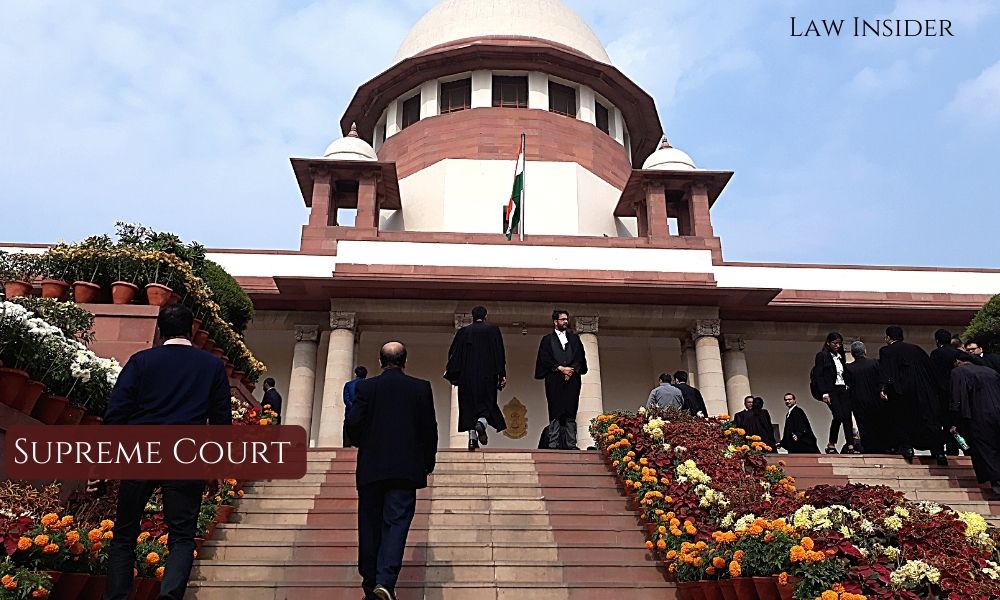Sakunjay Vyas
Published on: April 13, 2022 at 07:30 IST
The Two Judge Bench of Justice L. Nageswara Rao and Justice B.R. Gavai of the Supreme Court overturned the impugned judgment passed by the High Court of Judicature for Rajasthan, Bench at Jaipur, allowing the writ petition filed on behalf of the Biyani Shikshan Samiti and striking down the Notification vide which the appellant Dental Council of India had substituted Regulation of the Dental Council of India Regulations, 2006.
The Supreme Court recently ruled that The differential treatment for different classes would not be hit by Article 14 of the Constitution of India. The only requirement would be, as to whether such a classification has a nexus with the object sought to be achieved by the Act.
The Two Judge Bench of Justice L. Nageswara Rao and Justice B.R. Gavai was hearing an appeal against the impugned judgment passed by the High Court of Judicature for Rajasthan, Bench at Jaipur, allowing the writ petition filed on behalf of the Biyani Shikshan Samiti and striking down the Notification vide which the appellant Dental Council of India had substituted Regulation of the Dental Council of India Regulations, 2006.
The Apex Court, by analyzing the facts and evidence of the present case decided the matter considering the reasons for striking down the notification made by the council, that the high Court mentioned while deciding the writ petition, which were:
(i) that it is violative of Article 19(1)(g) of the Constitution of India;
(ii) that it is beyond the scope of the powers of the Council to make delegated legislation as provided under subsection (7) of Section 10A of the said Act;
(iii) that it is violative of Article 14 of the Constitution of India.
The Apex Court stated that the regarding the notification being violative of Article 19(1)(g) of the Constitution of India that relying on a judgment given by the constitutional bench it can be concluded that the measures taken and notification made was to ensure the maintenance of proper academic standards and infrastructure and that the right to establish an educational institution can be regulated.
The Apex Court while considering the that it is beyond the scope of the powers of the Council to make delegated legislation as provided under subsection (7) of Section 10A of the said Act stated that the Division Bench of the High Court has relied on clause (d) of subsection (7) of Section 10A of the said Act to come to a conclusion that clause (d) refers to adequate hospital facilities, having regard to the number of students likely to attend the institution.
That the Apex Court was of the opinion that clause (fb) of subsection (2) of Section 20 and clause (g) of subsection (7) of Section 10A of the Dentists Act, 1948, when read together can use any factors other than the ones provided to provide appropriate regulations
“ the conjoint reading of clause(g) of subsection (7) of Section 10A and clause (fb) of subsection (2) of Section 20 of the said Act that the Council is also empowered to take into consideration any other factors as may be prescribed and also entitled to make Regulations for prescribing any other factor under clause (g) of subsection (7)of Section 10A.” the Court said.
That the Apex Court while considering that the notification is in violation of Article 14 of the Constitution of India on the ground that the Dental Colleges established prior to impugned Notification would not be required to be attached with the Medical Colleges, whereas, the Dental Colleges, established after the impugned Notification, will be compelled to be attached to such Medical Colleges, stated that if the classes within the ambit of differential treat are different they cannot come under the violation of article 14 as they do not fall under the same comparison scales.
” The differential treatment for different classes would not be hit by Article 14 of the Constitution of India. The only requirement would be, as to whether such a classification has a nexus with the object sought to be achieved by the Act. “ the Court said.
That the Apex Court stated that the respondents filed writ petition and when the same failed in the Court of law filed a fresh writ petition for the same grievances which was further granted by the Division Bench of the High Court. Which in accordance with the judicial propriety should not have been heard by the Dicvision bench and the same should have been rejected.
As a result, the Apex Court overturned the impugned judgment passed by High Court of Judicature for Rajasthan, Bench at Jaipur by stating that on the ground of judicial propriety also the Division Bench of the High Court ought not to have entertained the writ petition for a prayer, which already stood rejected.

